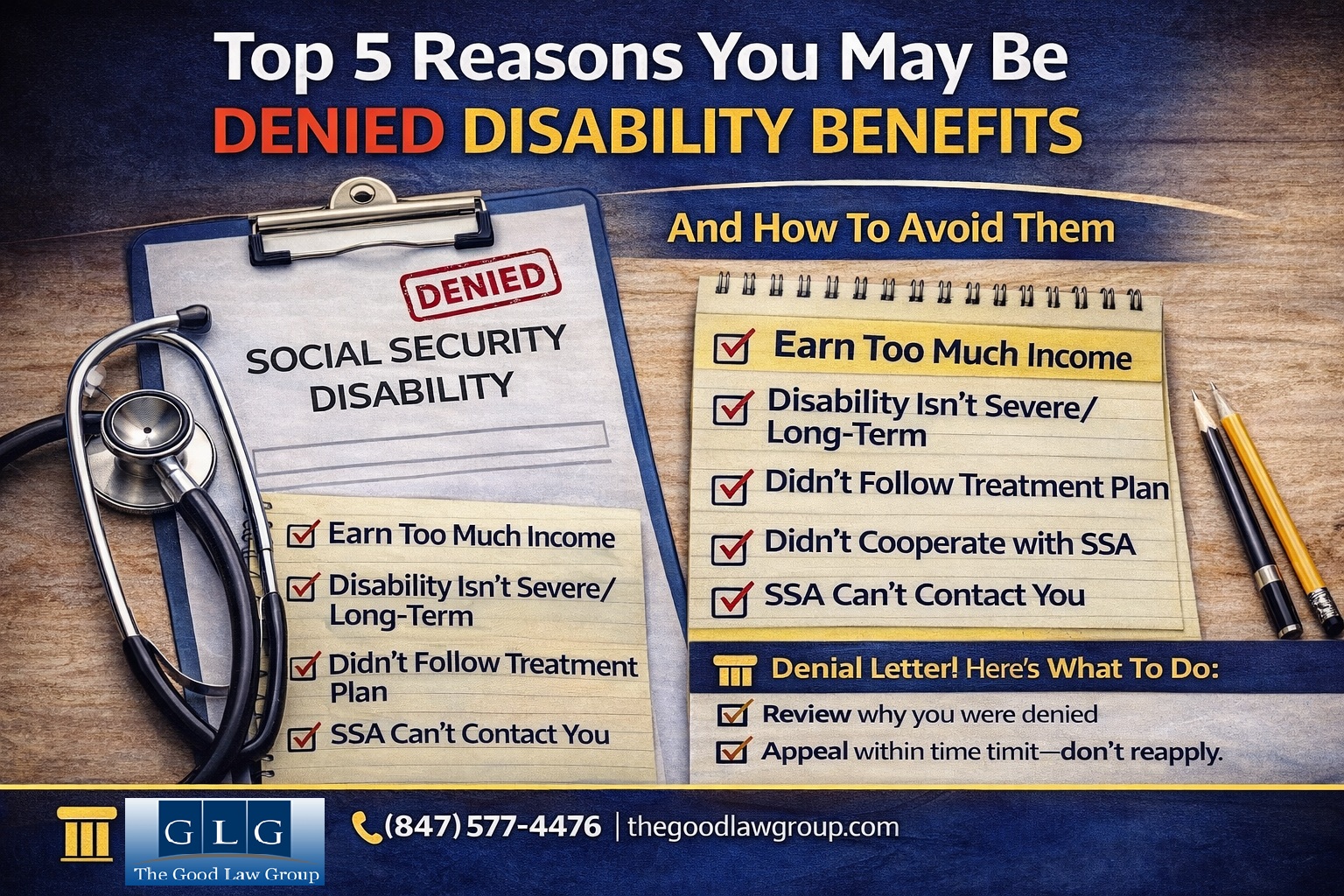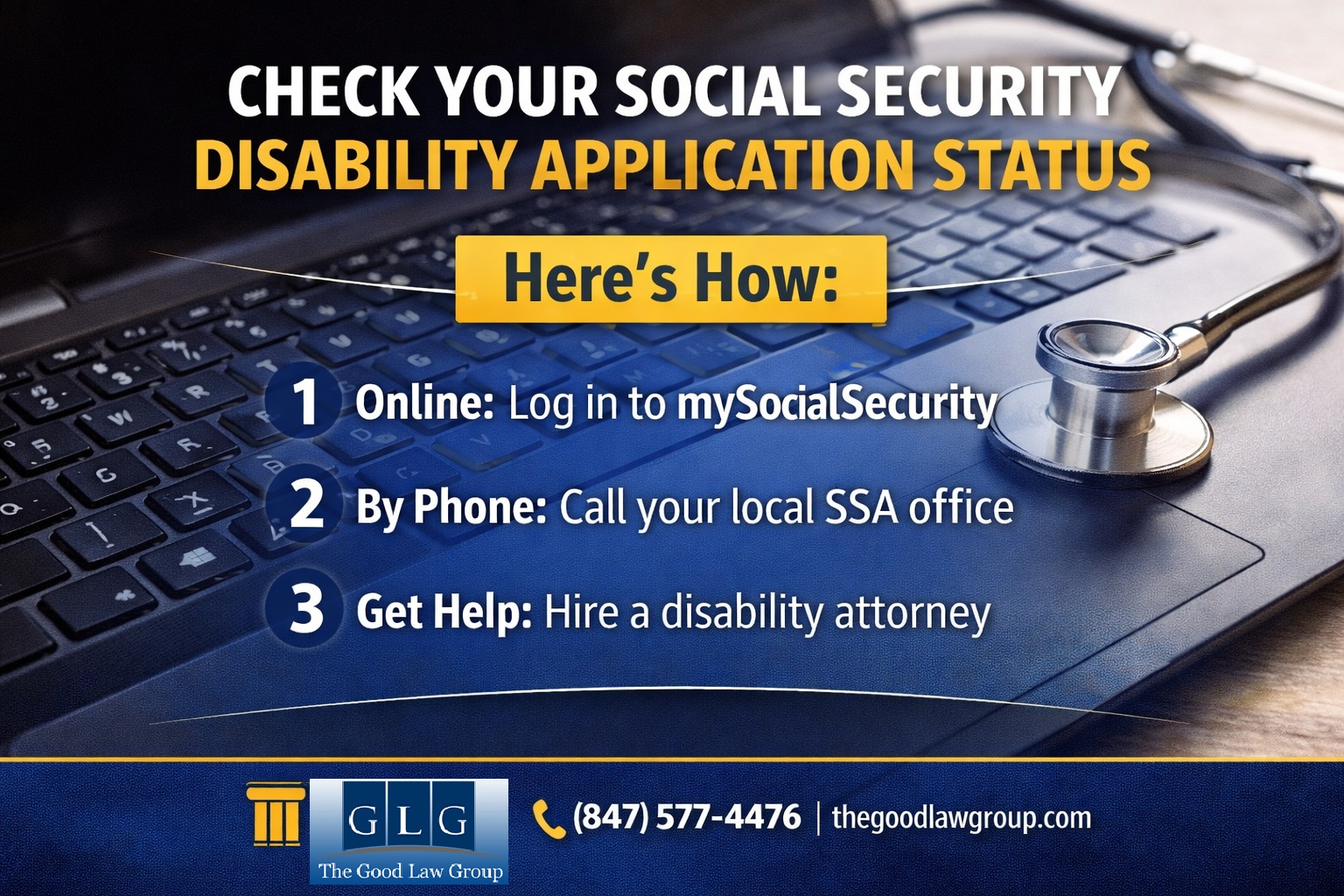Most disability claims are denied for technical or medical reasons. Because the SSA’s evaluation for disability benefits involves a complex review of the applicant’s medical and work history, there are many reasons Social Security disability benefits may be denied and denials may occur more than once in the review process.
Receiving a denial letter from the Social Security Administration (SSA) can be devastating for applicants, especially if they have been denied Social Security Disability benefits more than once. Unfortunately, being denied disability benefits is a common occurrence. The SSA usually denies around 65 percent of initial applications for disability benefits.
If an applicant has been denied disability benefits more than once early on in the process, there are two scenarios that could have occurred: (1) an applicant’s first application received a technical denial, so the applicant filed a second application and was denied again, or (2) an applicant’s first application was denied, so the applicant filed a request for reconsideration and was denied the reconsideration.
Two applications, two denials
Out of all the applications for disability benefits in a year, about 31 percent are given a technical denial right off the bat. Some common reasons for a technical denial include:
- The applicant’s income exceeds the substantial gainful activity level set by the SSA.
- The applicant has not earned enough credits to be eligible for benefits.
- The applicant’s application is missing medical records or other detailed information.
When these technical denials occur, applicants often try to apply again but receive a second denial.
Requests for reconsideration denied
Other applicants make it to the initial adjudicative stage only to be denied disability benefits. Applicants can file a request for reconsideration after an initial denial, which sends their cases to a different examiner and gives the applicants an opportunity to present more evidence. However, more than 90 percent of applicants are denied disability benefits again at the reconsideration level.
What to do next
When either of these situations occurs, the applicant should file an appeal. While only 18 percent of applicants continue with the appeals process at this point, moving forward with an appeal significantly increases the applicant’s chances of ultimately receiving disability benefits.
Strengthen your application
Before moving forward with the appeals process, applicants should bolster their medical evidence to prove their claims in order to strengthen their applications. Applicants should make sure that they have medical records that go back far enough in time to prove when their disability began, what kind of treatment the applicant has been receiving, and to provide enough information to the examiner about his or her condition.
File an appeal
Once an applicant is ready, he or she should file a disability appeal. After being denied reconsideration, the applicant can continue the appeals process by having a hearing before an administrative law judge (ALJ). The ALJ will review all the evidence in the application, hear arguments from the applicant, and listen to testimony from witnesses.
If an applicant is denied disability benefits at the hearing level, the applicant may continue the appeal of his or her case to the appeals council stage. The appeals council, which is made up of a team of ALJs, may choose to refuse to hear the appeal in its entirety or may deny disability benefits after conducting a review of the applicant’s application.
If an applicant is denied the opportunity to present his application to the appeals council or the appeals council denies him benefits after reviewing his application, the applicant can appeal his case to federal court. Though only a small number of applicants take their cases all the way to federal court, more than 80 percent of applicants are approved for disability benefits at this level.
✅ FAQ
❓ Why does the SSA deny disability benefits more than once?
The SSA can deny applications multiple times due to technical issues (such as income or missing records) or medical evaluations that don’t meet their criteria. Many applicants are initially denied but later approved during appeals.
❓ Should I reapply after being denied twice?
No. It’s usually more effective to file an appeal rather than starting over with a new application. Reapplying can waste time and delay your benefits.
❓ What can I do to improve my disability claim?
Gather complete medical evidence, including treatment history and documentation of how your condition affects your daily life. Consider hiring a disability attorney to guide the appeal.
❓ What is the next step after a denied reconsideration?
You can request a hearing before an Administrative Law Judge (ALJ), who will review your case and hear additional evidence. Many claims are approved at this stage.
❓ Do I need a disability lawyer to appeal?
While not required, having a Social Security disability attorney greatly increases your chances of success. They understand the SSA process, what evidence is needed, and how to represent you effectively.
Remember you are not alone
Keep in mind that applicants for Social Security Disability benefits can receive help from a representative or disability attorney at any level of the appeals process. Having an advocate on your side who knows how to navigate the system can be very useful to applicants and increase your chances of being approved for disability benefits.
Don’t Give Up After a Denial — Get the Support You Deserve.
If you’ve been denied disability benefits once or even multiple times, you’re not alone — and you still have options. The Good Law Group has helped thousands of applicants successfully appeal and win the benefits they’re entitled to.
📞 Call us today at (847) 577-4476 or request your free case evaluation to get started.









